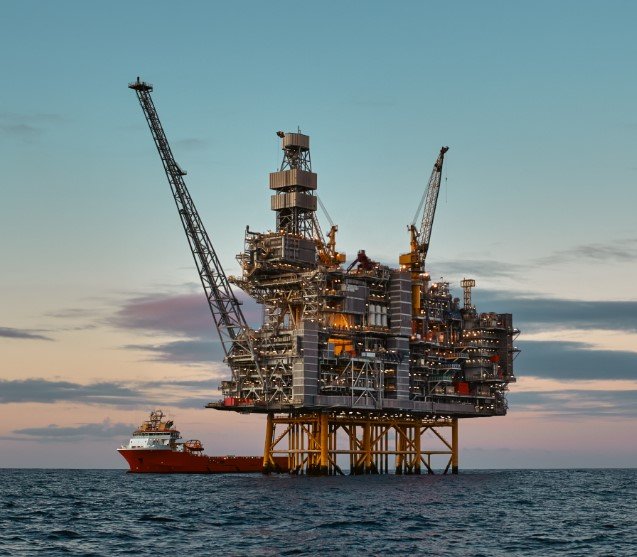QatarEnergy has sealed a major deal to acquire a 40 percent stake in the North Rafah exploration block offshore Egypt from Italian energy giant Eni. This move, completed on October 27, 2025, boosts QatarEnergy’s footprint in Egypt’s Mediterranean gas sector and aligns with its global push for new energy resources.
Deal Highlights and Background
QatarEnergy now holds 40 percent of the North Rafah block, while Eni keeps 60 percent and stays as the operator. The agreement got approval from Egypt’s government, marking a key step in international energy partnerships.
This farm-in deal fits into a wave of recent investments by QatarEnergy in Egypt. Just weeks ago, on October 5, 2025, the company picked up a 27 percent interest in the North Cleopatra block from Shell. That block covers 3,400 square kilometers with deep waters up to 2,600 meters.
Experts see this as part of Qatar’s strategy to tap into the Eastern Mediterranean’s rich gas reserves. Egypt has become a hot spot for exploration due to its proven fields and growing demand for natural gas.

North Rafah Block Details
The North Rafah block sits in the Mediterranean Sea off Egypt’s northeastern coast. It spans about 3,000 square kilometers, with water depths reaching up to 450 meters.
Exploration here could uncover significant gas finds, similar to nearby discoveries. The area’s geology shows promise for hydrocarbons, drawing interest from major players.
Key features of the block include:
- Location: Northeastern Egypt offshore.
- Size: Nearly 3,000 square kilometers.
- Depth: Up to 450 meters.
- Operator: Eni with 60 percent stake.
QatarEnergy’s Expansion in Egypt
QatarEnergy has ramped up its activities in Egypt over the past year. This latest deal follows others that strengthen its position in the region.
In November 2024, QatarEnergy gained a 23 percent stake in the North El-Dabaa block from Chevron. That area lies close to shore, with depths from 100 to 3,000 meters.
These moves come amid Egypt’s efforts to boost its energy output. The country aims to meet domestic needs and export more gas to Europe.
Here’s a quick look at QatarEnergy’s recent Egypt deals:
| Block Name | Stake Acquired | Partner/Operator | Date Announced | Area (sq km) |
|---|---|---|---|---|
| North Rafah | 40% | Eni | October 27, 2025 | 3,000 |
| North Cleopatra | 27% | Shell | October 5, 2025 | 3,400 |
| North El-Dabaa | 23% | Chevron | November 2024 | Not specified |
This table shows how QatarEnergy is building a diverse portfolio in Egypt’s offshore zones.
Earlier in 2024, on May 12, QatarEnergy announced another acquisition, though details remain focused on Mediterranean prospects. These steps help secure long-term energy supplies amid global shifts away from Russian gas.
Leadership Views on the Agreement
Saad Sherida Al-Kaabi, Qatar’s Minister of State for Energy Affairs and QatarEnergy’s CEO, praised the deal. He called it a vital part of the company’s international exploration goals.
Al-Kaabi thanked Egypt’s Ministry of Petroleum and Mineral Resources, along with Eni, for their support. His comments highlight the cooperative spirit driving these partnerships.
Eni, a leader in Mediterranean exploration, sees value in sharing risks and expertise. The Italian firm has a strong track record in Egypt, including major finds in the Zohr field.
Why This Matters for Energy Markets
This acquisition reflects broader trends in global energy. With Europe seeking alternatives to traditional suppliers, Egypt’s gas could play a bigger role.
Qatar, already a top LNG exporter, gains more upstream assets. This diversifies its holdings beyond the Gulf.
Potential benefits include job creation in Egypt and tech transfers from international firms. However, challenges like deep-water drilling and market volatility remain.
Analysts predict more such deals as countries race for secure energy sources. Recent events, like tensions in the Middle East, underscore the need for stable partnerships.
Looking Ahead to Exploration Outcomes
Future drilling in North Rafah could start soon, given the block’s promising setup. Success here might lead to production boosts for Egypt.
QatarEnergy’s strategy also eyes therapeutic uses of resources, but the focus stays on gas exploration. Investors watch closely for updates on seismic surveys and well tests.
As energy demands grow, deals like this shape the industry’s direction. They promote collaboration and innovation in tough offshore environments.
What do you think about QatarEnergy’s latest move? Share your thoughts in the comments and pass this article along to others interested in global energy news.
